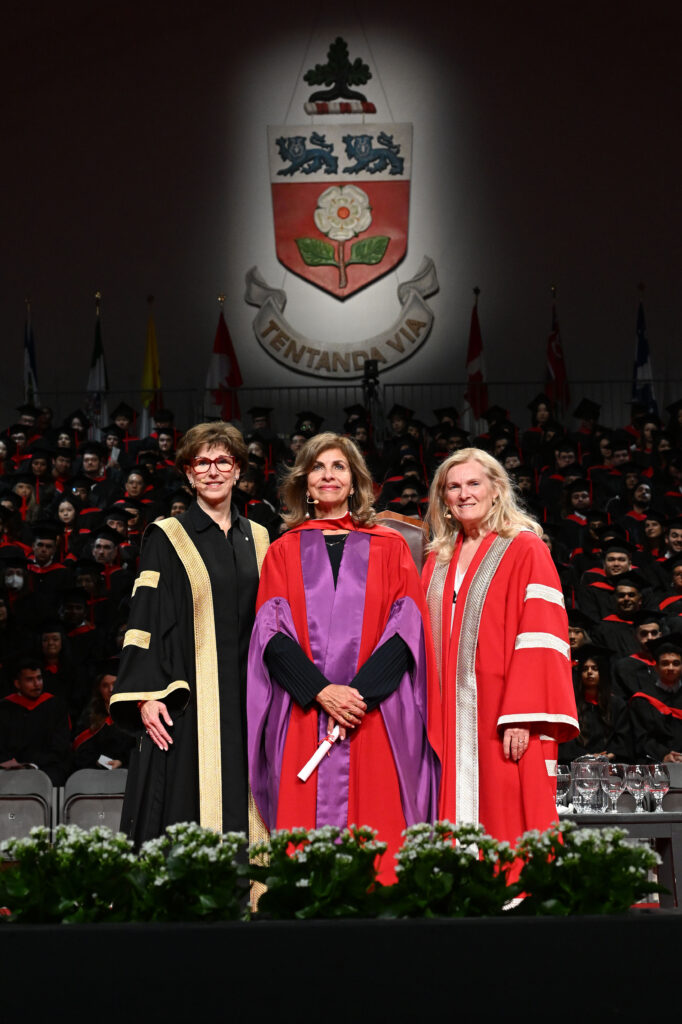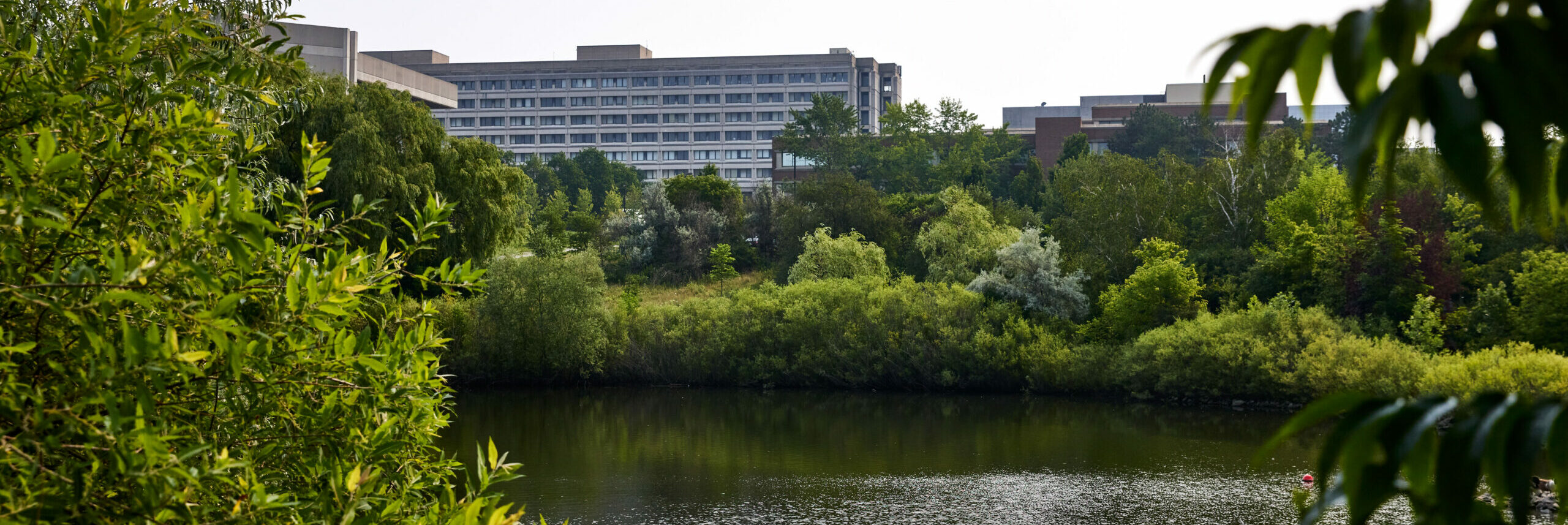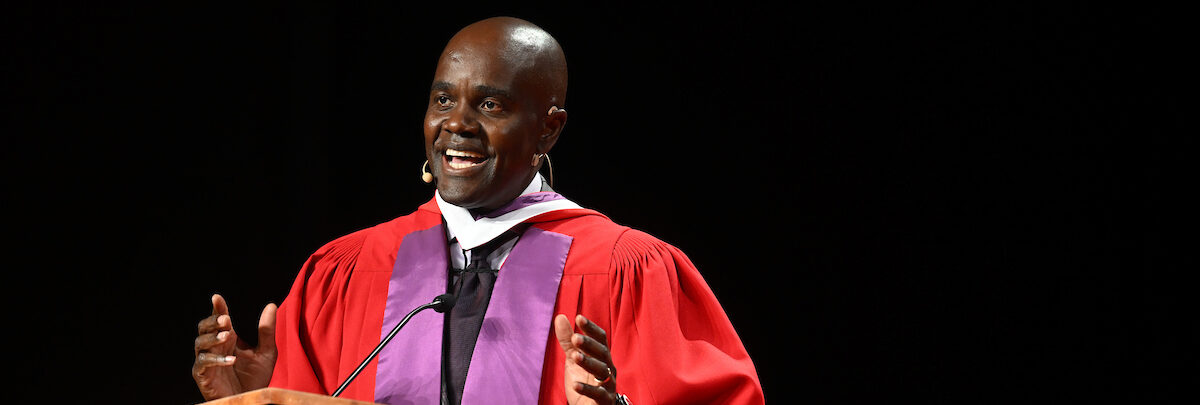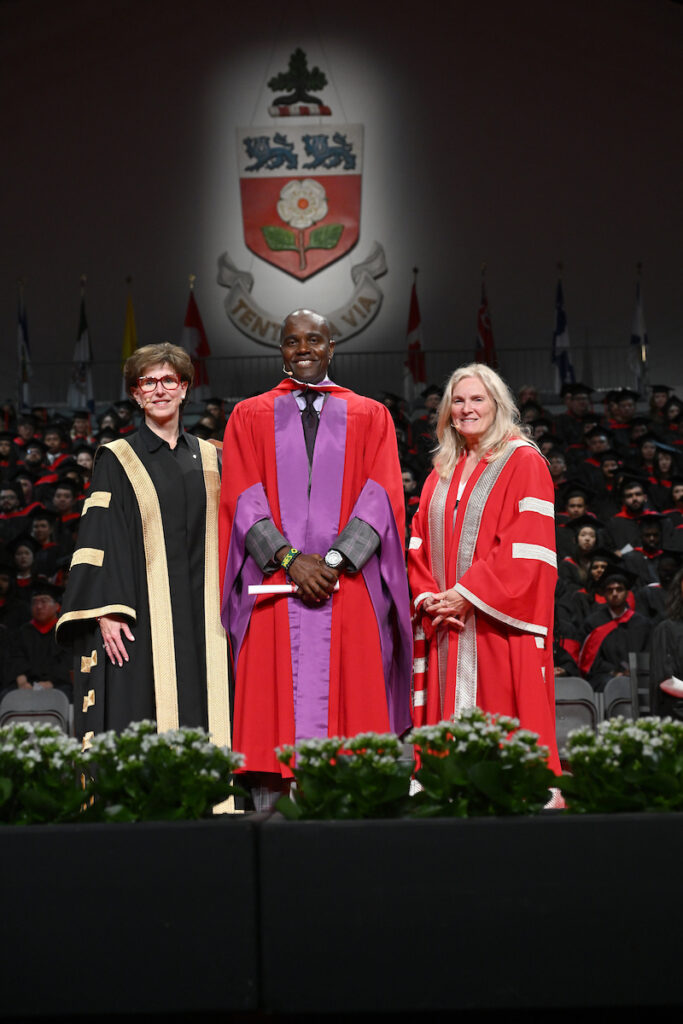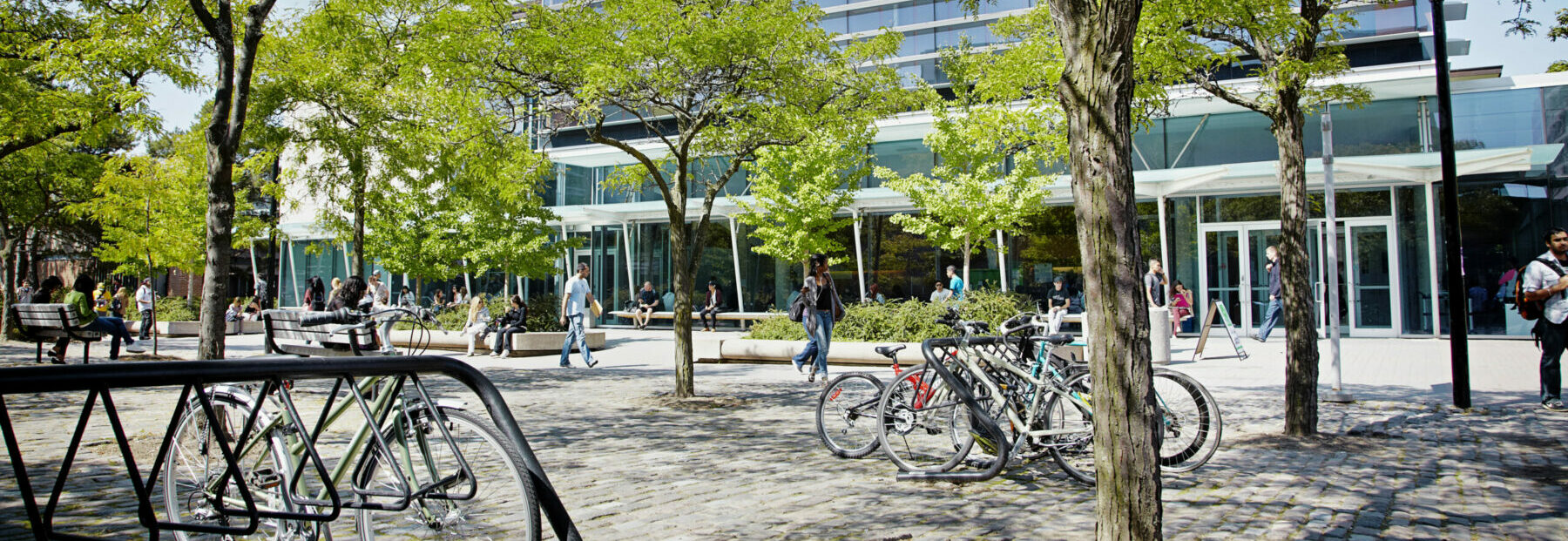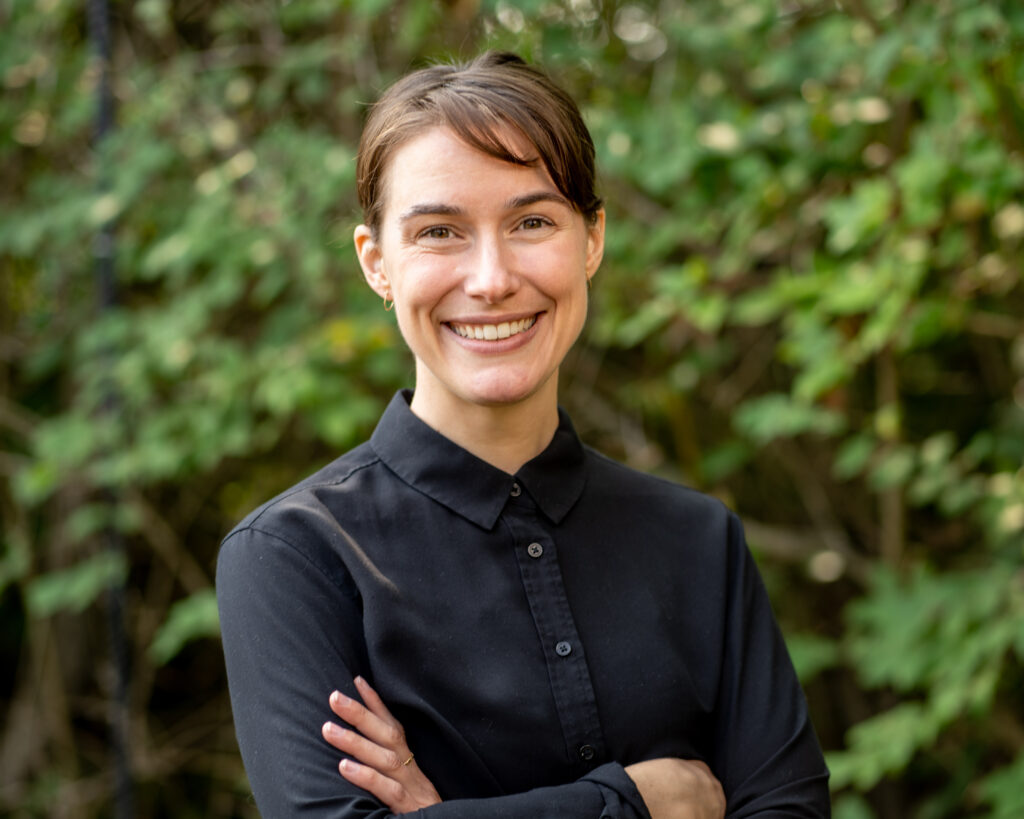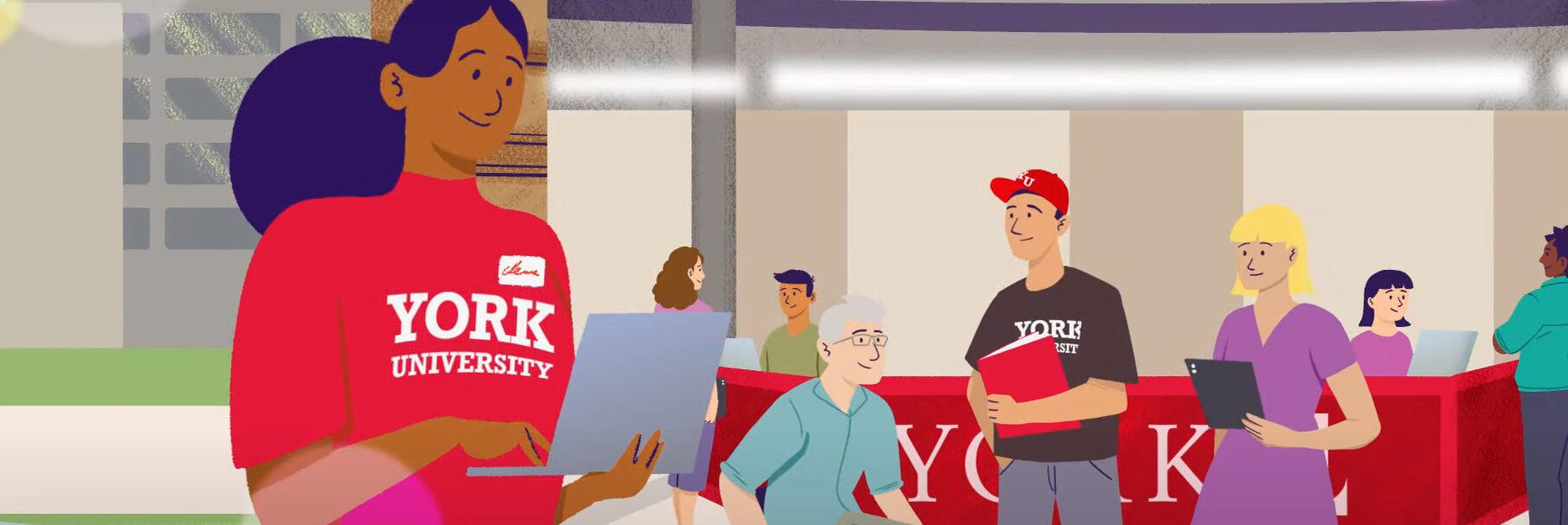The events in Israel and Gaza, and in communities around the world this past week, have had a profound impact on us all. When classes resume following reading week, we encourage everyone to be mindful of the difficulties that students, faculty, instructors and staff may be experiencing related to the ongoing tragic violence and loss of life.
Last Sunday, the University sent out a tweet unequivocally denouncing the attacks by Hamas against civilians in Israel. As events have been unfolding, we have been reaching out to students and student groups supporting Jewish and Palestinian students, and to faculty and staff, to offer support and assistance directly. We also issued a community-wide message on Tuesday, Oct. 10 providing information about available supports.
These world events have amplified deep divides. An inflammatory and abhorrent statement made by three student unions at York University has created considerable concerns and unease, and we have unequivocally condemned the statement. We are an incredibly diverse community of people who care passionately about advancing the well-being of the communities we serve. This requires that we create an environment where everyone feels safe in sharing different perspectives on how to advance that goal. Freedom of expression has limits and comes with responsibilities. We are better than reckless rhetoric and divisive words and deeds. And we must never tolerate the promotion or justification of hate or violence.
The University is asking faculty and instructors to exercise care and flexibility over the next week in relation to academic considerations, including requests for alternative access to course materials for students with safety concerns or in need of support. Students who have concerns about coming to campus should be accommodated wherever that is possible.
Faculty and instructors may require support to navigate challenging conversations or conflict in the classroom. I encourage you to look at the Teaching Commons resources that are being offered to support you. Supports are available for students with concerns including the respective associate dean students of their Faculties; the Centre for Human Rights, Equity and Inclusion; and the ombudsperson.
We also want you to know that the Community Safety team has proactively moved to strengthen safety and security measures at this time, including through:
- increased campus safety patrols in priority areas;
- additional security for high-profile events occurring on York’s campuses;
- enhanced CCTV including increased reviews of high traffic areas and residences;
- engaging in ongoing dialogue with Toronto Police Service to be prepared to quickly activate additional support if needed;
- GoSAFE staff will continue to perform regular checks and are available at any time to accompany community members with safety concerns;
- classroom locations for courses are behind Passport York; and
- an Incident Response Plan has been developed for use in the face of any unexpected events that could compromise safety on campus.
If you have any specific safety questions or concerns to share, I ask that you contact the Community Safety department at safety@yorku.ca.
I know many members of our community are experiencing fear and trauma that can affect mental health and well-being. For our students, please know that counsellors at York’s Student Counselling, Health and Wellbeing Centre are ready to support you. Please call 416-736-2100 or email schw@yorku.ca and identify what you are seeking support for, so we can prioritize our reply, or you can come in during office hours and speak with one of our drop-in counsellors.
For employees who are eligible to work remotely, managers are reminded of the flexibility that exists within the Hybrid Work Policy to approve ad hoc remote work. Employees with well-being concerns, are encouraged to access available supports which can be found at YorkU.ca/Well-being/Resources.
Collectively, we are responsible for creating an inclusive and respectful environment where community members feel safe and welcomed without fear of intimidation or harassment. Please remember that in such painful moments it is even more imperative that we function as a community of care.
Sincerely,
Rhonda Lenton
President and Vice-Chancellor
Un message pour la communauté de l’Université York
Les événements survenus en Israël et à Gaza, de même que dans diverses communautés à travers le monde au cours de la dernière semaine, ont eu un fort impact sur tout le monde. Lorsque les cours reprendront après la semaine de lecture, nous encourageons tout le monde à être sensible aux difficultés que le corps étudiant, le corps enseignant et le personnel éprouveront dans la foulée de toute cette violence tragique et soutenue et des pertes de vie humaines.
Dimanche dernier, l’Université a publié sur a plateforme de média social X un message dans lequel elle dénonçait sans équivoque les attaques du groupe Hamas contre des civiles en Israël. Au fil des jours, nous avons communiqué avec nos étudiants et avec les associations étudiantes qui soutiennent les étudiants juïfs et palestiniens, avec le corps enseignant et le personnel, pour offrir directement soutien et assistance. Nous avons également diffusé un message à l’ensemble de la communauté le mardi 10 octobre pour diriger les membres de la communauté vers les services de soutien qui leur sont disponibles.
Ces événements d’une ampleur mondiale n’ont eu pour effet que d’accentuer de profondes divisions. Une déclaration incendiaire et odieuse a été publiée par trois associations étudiantes de York, ce qui a eu pour effet de susciter des inquiétudes et un malaise considérables, et nous avons condamné sans équivoque cette déclaration. Nous formons une communauté incroyablement diverse dont les membres se passionnent pour faire avancer le bien-être des communautés que nous servons. Pour cela, il nous faut maintenir un environnement où tout le monde se sente à l’aise de partager ses idées pour faire progresser cet objectif. La liberté d’expression a ses limites, cependant, et s’accompagne de responsabilités auxquelles personne n’échappe. Par ailleurs, nous ne pouvons jamais tolérer tout propos visant à promouvoir ou à justifier la haine et la violence.
L’Université demande au corps professoral de faire preuve de bienveillance et de souplesse envers la population étudiante au cours de la prochaine semaine en ce qui concerne toute demande d’accommodement, y compris toute façon d’accorder l’accès au matériel d’apprentissage nécessaire à ceux et celles qui craignent pour leur sécurité ou ont besoin de soutien. Les étudiants qui craignent de revenir sur le campus devraient pouvoir compter sur des accommodements dans la mesure du possible.
Il est possible que les membres du corps professoral aient besoin d’aide pour faire face à des conversations difficiles ou à des situations de conflit en classe. Je vous encourage à consulter les ressources offertes sur le site de Teaching Commons à cette fin. Les étudiants ont accès à du soutien, y compris au vice-décanat aux étudiants, ou à la vice-principale, affaires académiques, selon qu’ils sont sur le campus de Keele ou à Glendon. Le Centre for Human Rights, Equity and Inclusion et l’Ombudsperson sont également là pour les soutenir.
Nous voulons également que vous sachiez que le Département de la sécurité communautaire s’est donné pour mission de renforcer les mesures de protection et de sécurité, notamment en :
- augmentant le nombre de patrouilles dans les secteurs prioritaires des campus
- fournissant un service de sécurité accru dans le cadre d’activité particulièrement sensibles sur les campus de York
- intensifiant l’analyse du contenu des caméras de sécurité dans les secteurs très fréquentés et dans les résidences étudiantes
- maintenant la communication avec le service de police de Toronto pour être prête à agir rapidement et à obtenir rapidement du renfort, au besoin
- veillant à ce que l’équipe GoSAFE continue à faire des vérifications de routine et demeure disponible en tout temps pour accompagner les membres de la communauté qui s’inquièteraient pour leur sécurité
- maintenant accessibles uniquement avec un Passeport York l’emplacement des salles de classe
- et en créant un plan d’urgence pour intervenir dans l’éventualité d’actes qui compromettraient la sécurité sur les campus
Si vous avez des questions ou si vous souhaitez signaler quelque chose d’inhabituel, je vous invite à communiquer avec le Département de la sécurité communautaire à safety@yorku.ca.
Je sais que de nombreuses personnes de la communauté composent actuellement avec de craintes et des traumatismes qui peuvent avoir un impact sur leur santé et leur bien-être mental. Je rappelle à la communauté étudiante que les équipes de soutien psychologique de York (que vous pouvez joindre au (416) 736-2100 ou en écrivant à schw@yorku.ca) et les Services de counseling de Glendon (que vous pouvez joindre au 416-487-6709 ou en écrivant à counselling@glendon.yorku.ca) sont là pour vous aider. Il vous suffit d’indiquer la raison pour laquelle vous les consultez de sorte qu’ils puissent trier les demandes par ordre de priorité. Vous pouvez également vous rendre directement au Centre, à Keele ou à Glendon durant les heures d’ouverture pour parler à un membre de l’équipe de soutien psychologique.
Dans le cas des membres du personnel autorisés au télétravail, nous rappelons aux gestionnaires que la politique sur le travail hybride permet une certaine souplesse leur permettant d’approuver un mode de travail temporaire. Les membres du personnel qui éprouvent pour qui la situation est particulièrement éprouvante peuvent se prévaloir de services dont la liste se trouve sur le site https://www.yorku.ca/glendon/supports-and-services/counseling-de-glendon/?lang=fr.
Ensemble, nous nous devons de créer et de maintenir un environnement qui soit inclusif et respectueux, un environnement ouvert où les membres de la communauté se sentent en sécurité, sans craindre d’être l’objet d’actes d’intimidation ou de harcèlement. Et surtout, n’oublions jamais, tout particulièrement en ces temps troubles et difficiles, qu’il est important plus que jamais d’être bienveillants envers les membres de la communauté dans son ensemble.
Je vous remercie sincèrement.
Rhonda Lenton
présidente et vice-chancelière
